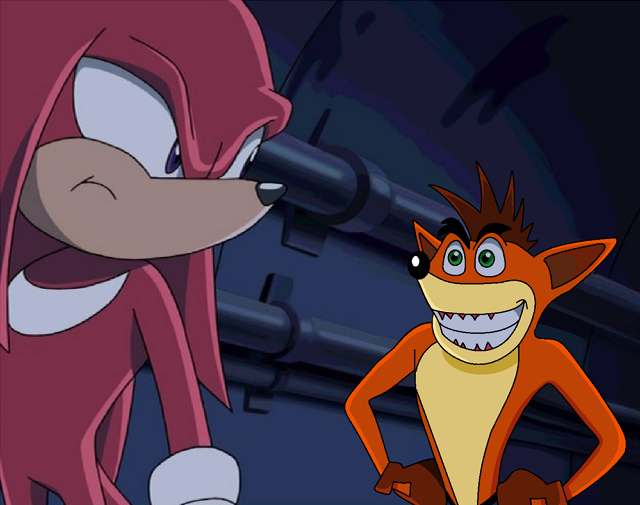I wrote about this before, but September the 9th is an anniversary of sorts. Back fourteen years ago, we were all treated to a now-revered gaming platform: the Sega Dreamcast.
But what I didn't mention was that it wasn't the first system to be officially released on the ninth of September, oh no, no. Four years prior, in 1995, the first of the two major platforms that put Sega's head under the water until it stopped kicking was released… the Sony Playstation.
So on this revelation, I thought I might tell everybody the story not of how Sony directly came to destroy Sega's hardware legacy, but how it became the accessory to the murder of that division. Gather 'round, e'rybody! It's storybook time!
Back in 1994, Sega was (stupidly) supporting a grand total of four unique platforms: Genesis, Game Gear, Sega CD, and the 32X (there was the Pico too, but that wasn't as prominent… anywhere). Not only were they unique, but most needed the core hardware of the Genesis because they weren't standalone consoles, so basically they were just building off their old stuff without actually bothering to innovate much. So when they announced they were working on a new console called "Aurora," later dubbed the Saturn, people were excited… but reservedly so.
During the time Sega was fracturing their fanbase, Sony was salvaging a ruined deal with Nintendo. They were asked to come up with a CD-ROM attachment for the Super NES—which, one might think, would've competed with the Sega CD and 3DO and anyone else who might take advantage of the new tech—and had gotten reasonably far with the project before Nintendo pulled away. When the Big N pulled back, they decided to finish the project and release it as the Playstation. The original PS and the Saturn launched nearly side by side in Japan, and were set to do the same in the US until Sega decided to pull the trigger at E3 and surprise everyone with a "surprise" hardware launch, timed to coincide with their press conference.
In response, Sony rep Steve Race walked out for a "brief" presentation. He walked up to the mic, cleared his throat, and said… "Two-nine-nine." And he walked away. Like a corporate boss.
Sony eventually launched on September the 9th. And kicked Sega's ASS.
More like "Playstation Did Was Genes-ISN'T," amirite?
What still surprises me is that four years later, likely by way of trying to shake Sony's monkey off it back, their final piece of hardware was launched the same day. The Dreamcast was a lot of steps forward for gaming… the first console with honest-to-cheese online play, a massive advancement in graphical power, new art styles and genre-busters (like Jet Grind Radio which takes both cakes), and a library filled with games that every Dreamcast fanboy can drool over and argue with their friends about. (Which reminds me to mention… Shenmue. Argue at your leisure.)
Sony, of course, hyped the holy hell out of their upcoming PS2, which put a damper on the whole thing. Despite the biggest and most successful console launch up to that time, the PS2 simply broke Sega's record after its launch in early 2000. All things put together, the Dreamcast simply never stood a chance, no matter how amazeballs it might have been.
And there you have it. Sony's little gray box and Sega's final major gasp, each celebrating something pretty awesome on the same day. It makes me giggle a little that so many of both console's best games can now be played through PSN, an adorable little end to their feud. It makes me want to call up some kid I grew up with and Casper for a round of Chu Chu Rocket and drinks (even though Casper can't drink, mostly because he's a ghost but partly because he's a CHILD ghost).
Here's to you both, Playstation and Dreamcast. Both of great quality, both with dedicated fanbase, and both made my childhood a bit more awesome. Bottom's up!







